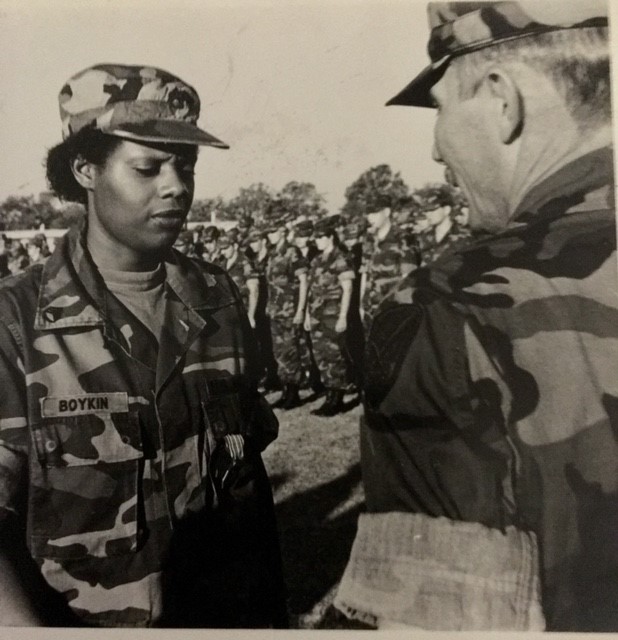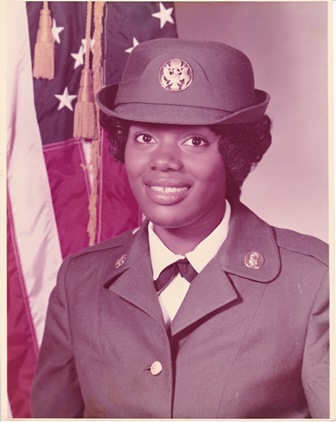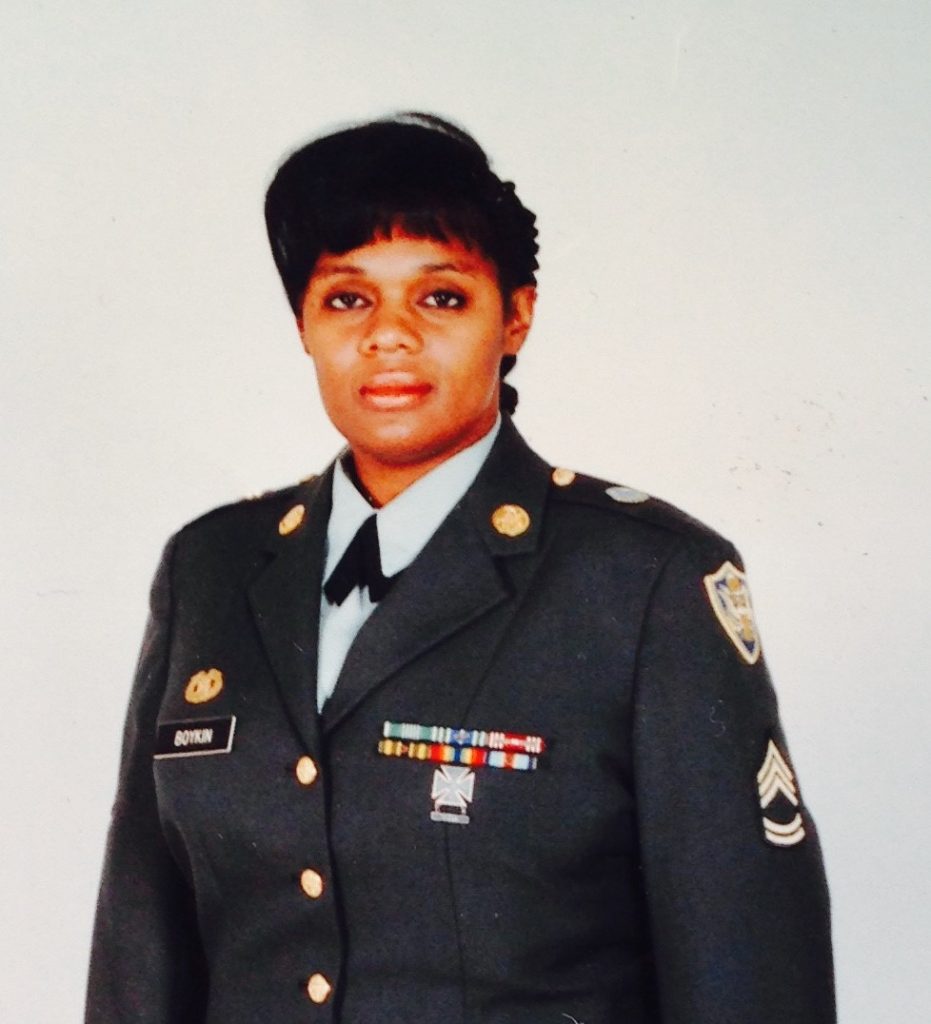Brief Biography: Tawanna Boykin Jones was born in Newark New Jersey but grew up in South Florida, outside of Miami. Her decision to enlist was influenced in part by her family. Her brother, aunt, and uncle all served in the military. However, the media’s portrayal of servicemen played a larger part in her decision. She was drawn to the uniform and the respect that military personnel was afforded. Tawanna had initially planned to join the Air Force with one of her close friends but when they realized the Army only required two years of service as opposed to four, they both joined the army instead. This was in 1974, right at the end of the war. After her training at Fort Jackson in North Carolina, she was stationed in Germany. She was the first woman to be integrated into this all-black men’s unit. After the war, she reenlisted and served for 20 years in total.
Day to Day in the Army: Mrs. Jones unit was training in Germany with the expectation that they could be sent to Vietnam at any point. Because she joined the military in 1974, at the tail end of the war, she never saw any combat in Vietnam. Her primary role was as in logistics, working specifically in data processing. She would work 12-hour shifts at night processing data and sending it out to different units, in addition to tasks like guard duty and combat training.
Gender in the Military: She had many trying experiences as the first woman in her unit. The first night that she was in Germany, her sergeant took one look at her and said: “we don’t want her, send her back where she came from”. In response to this, Tawanna refused to move from outside his office door until nighttime when they finally told her where to go. She was the lone woman in her unit for two months until a woman named Kathy joined her. Kathy’s presence did not make her situation any better, but rather they were both constantly doubted: “[there] was this unspoken thing that because I was there I always had to push myself to show that I was as good as the males. It never came out of their mouth but it was the attitude of what I couldn’t do and what they wouldn’t let me do, not so much of the safety part of it just more like as if I was invisible”. In addition to this, she was always treated unfairly during physical fitness tests. She would “max out” her run on every test but her supervisors would fail her for some technical aspect of the push ups or sit ups. She had to do every physical exam multiple times before she passed. She faced this same sort of gender discrimination as a veteran as well. On a Vietnam Veteran’s trip from Tuscaloosa to Washington DC, she was mistaken for a caretaker twice despite wearing a large pin that read “Vietnam Vet”. Gender discrimination within the military during the 1970s is, sadly, unsurprising, but to still feel “invisible” as a woman veteran in 2019 is hugely disappointing.
Mental Health: Unfortunately, during Mrs. Jones time in the military, there were very limited mental health resources. The closest thing to a mental health professional they had was a chaplain. This is problematic both because chaplains are not trained to be mental health professionals and many service men and women are not religious. This could understandably be alienating for many. Additionally, Jones stated that in her experience, the chaplain was incredibly biased. When she went to him regarded marital problems he sided with her husband while reminding her of “a woman’s role”. She explained that, in lieu of any counseling, it was important to form strong relationships within one’s unit. This type of support system was the best way to combat feelings of isolation and despair.
Life After Service: Despite serving twenty years in the military, the only job Tawanna could get after leaving the service was in retail: “I had to work in retail because no one else would hire me”. In this first job, she was only making minimum wage. She remembered her managers complimenting her discipline and work ethic, with a sort of shocked demeanor, as if she had never held a job before. Despite this initial roadblock, Tawanna eventually used the GI Bill to go back to school and while in school she started working in law enforcement. Now, retired from both the military and law enforcement, she spends her time volunteering with the VA which is where she finds both comfort and a sense of community.
Further Reading:
Westheider, James E. (2008). The African American experience in Vietnam: Brothers in arms. Lanham, MD: Rowman & Littlefield
Steinman, Ron. (2000). Women in Vietnam. New York, NY: TV Books,
L.L.C. Daddis, Gregory A. (2014) Westmoreland’s War: Reassessing American Strategy in Vietnam. New York, NY: Oxford University Press
Adler, Bill. (2003). Letters from Vietnam. New York, NY: The Random House


